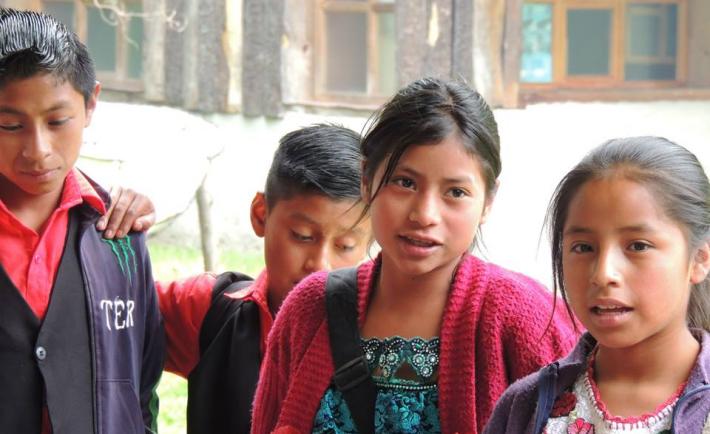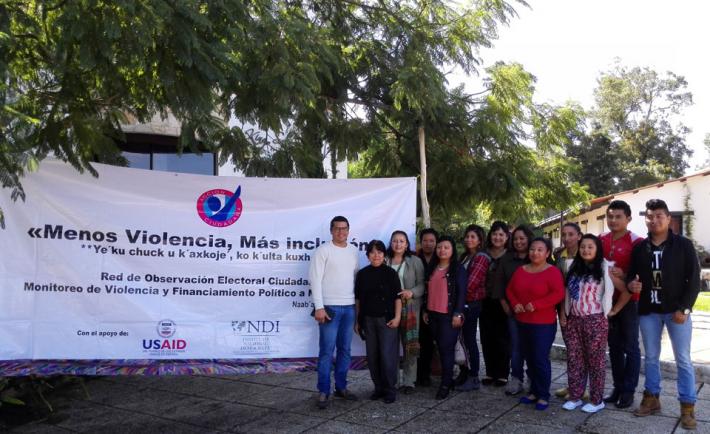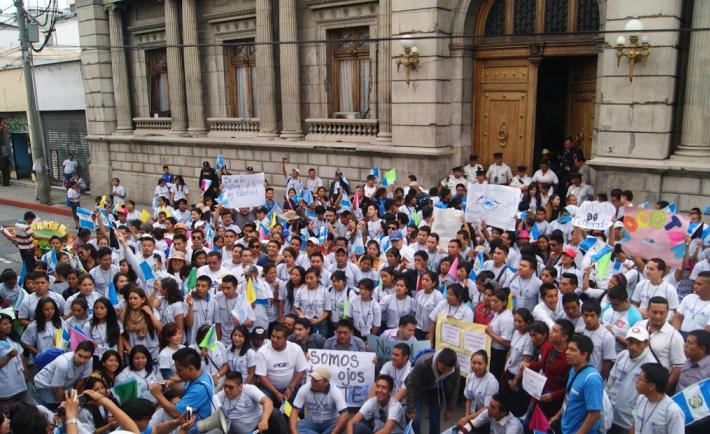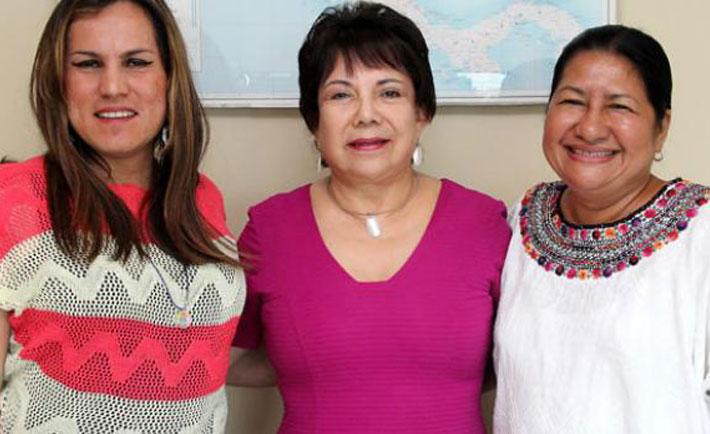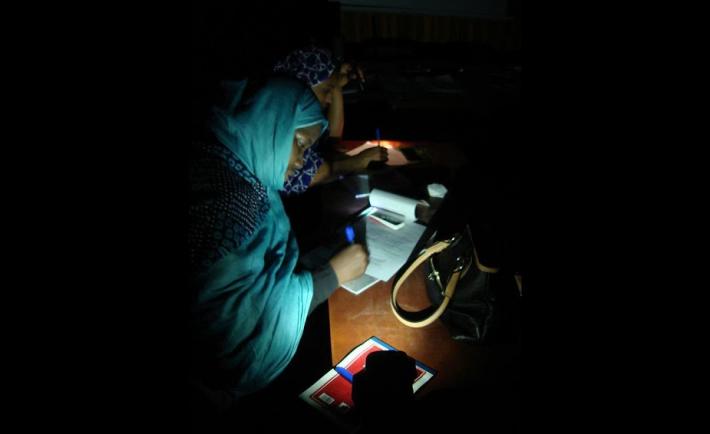Equal participation of citizens in politics is essential for strengthening democracy. Citizen participation must be inclusive, representative and intercultural. One of the foundations of democracy is respect for human rights, which includes recognition of individual and collective rights of indigenous peoples. And one of these collective rights lies precisely in the use of indigenous languages. This is especially true in Guatemala, where indigenous peoples represent a large and diverse, but frequently marginalized, population.
The Importance of Mayan Languages in Constructing a Democratic Society in Guatemala
Election Observers Promote Tolerance and Transparency in Guatemalan Communities
Louis Enrique Borrayo Hernandez is a young Guatemalan man who learned about the election observation through Association Ixim, the local organization that supported Citizen Action’s (AC) observation in the department of Sacatepéquez, just outside of Guatemala’s capital. We recently spoke with Louis, as well as his colleague Theylor (who preferred that we not use his full name), about why they decided to join the AC network as long-term observers. Their answer was clear: “we wanted to make a difference in our community and our country,” they both agreed.
Indigenous Ixil Women Take a Stand Against Gender-Based Violence in Guatemala
_1_1.jpg)
A Mayan ceremony celebrating the launch of the “Less Violence, More Inclusion” observation effort in Nebaj, Quiche, Guatemala, to reduce election violence and illegal campaign activity leading up to the Sept. 6 presidential election.
The Network of Ixiles Women is based in Nebaj, which is located in a remote valley in the Ixil area of the department of Quiché, Guatemala -- a region that is predominately Maya-Ixil. The organization was one of 13 local groups that partnered with Citizen Action (AC) to observe electoral violence and campaign spending across 20 municipalities. We recently spoke with the organization’s coordinator, Juana Baca, as well as two observers, Paula Ramírez and Andrés Saquic, about their experience participating in the “More Inclusion, Less Violence” electoral observation network.
Not Just Observation, Guatemala Election Monitoring Opens Doors to Dialogue and Civic Education
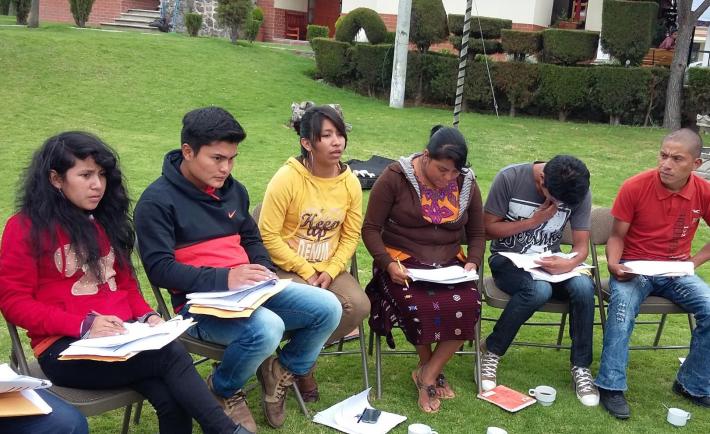
Milvia Roxana Lopez (third from left) speaks during a training for citizen election observers in Guatemala. “Self-confidence was key,” she said, referring to her ability to break through gender-based stereotypes as an election observer documenting incidents of violence and educating voters during last year’s historic elections.
At 25 years old, Milvia Roxana López, an indigenous woman, may be diminutive in size but she exudes a confidence that demands she be heard. As an observer who monitored electoral violence, Milvia met with leaders from her town and surrounding communities to document acts of electoral violence -- not an easy topic to broach in country that has one of the highest homicide rates in the world. “For me, self-confidence was key,” declared Milvia, referring to her role as an election observer. “To many people, it’s not the same when a woman says something as when a man says something. I don’t know where I got the strength, but I did it.”
Welcome to Voices from Guatemala
Since the Guatemalan elections concluded in October 2015, NDI has held conversations with local partner organizations and election observers to better understand their experiences, as well as their hopes for their communities and the country. In order to highlight their voices, we will post a series of blogs documenting stories of inclusion and change -- the people behind the headlines working to build a strong democracy in Guatemala.
Transforming Thoughts: The Realities of the LGBTI Communities
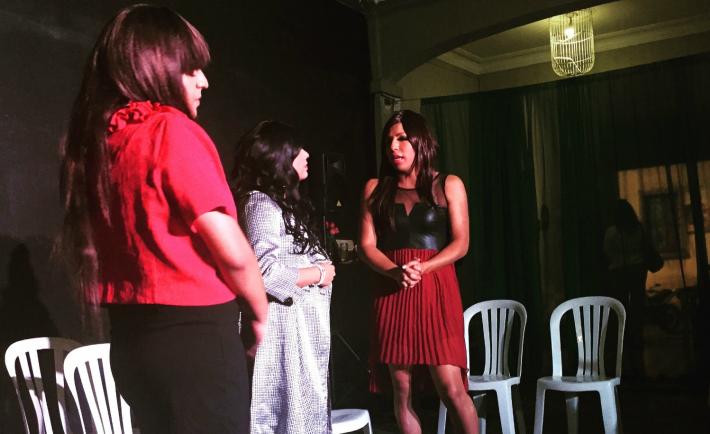
The LGBTI communities in Guatemala uses art to increase tolerance, understanding and political participation.
In the captivating play “Transforming Thoughts: The Realities of the LGBTI Communities,” members of the lesbian, gay, bisexual, transgender, and intersex (LGBTI) communities showed the harsh realities of life as a transgender woman in Guatemala. Drawing on stories from their personal lives, and the broader LGBTI communities, the actors weave together scenes demonstrating lack of opportunity, abuse and survival. I
Podcast Discusses Guatemala’s Political Environment with Local Partners
With funding from the United States Agency for International Development (USAID), the Consortium for Elections and Political Process Strengthening (CEPPS) is implementing the program “Elections: More Inclusion, Less Violence” to monitor and mitigate electoral violence and illicit financing of electoral campaigns, support the Supreme Electoral Tribunal’s administration of the elections, strengthen traditionally marginalized civil society groups and increase social inclusion in the electoral process. Each CEPPS partner invited one of their local partners to discuss a range of topics, including the political crisis, election results, the administration of the elections, civic political participation and the importance of making the electoral process more inclusive and representative of all members of Guatemalan society.
One Day, Five Citizen Election Observation Efforts
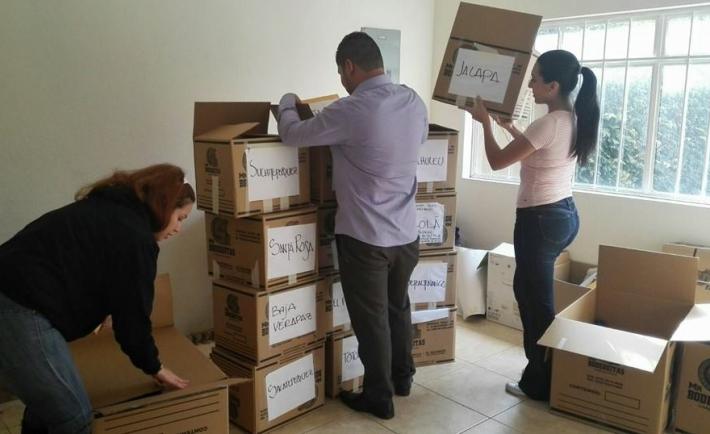
Acción Ciudadana prepares observer kits and other materials for the second round quick count on October 25 in Guatemala. Credit: Acción Ciudadana
Today, 10 countries will hold elections around the world. From local contests to national races, runoff elections to constitutional referendums, no other day this year will have more elections. Civil society, primarily through nonpartisan citizen observers, has been actively monitoring these elections, helping to mitigate violence, deter fraud, impartially assess the processes and, when warranted, enhance public confidence. NDI is helping to build the capacity of citizen election observers in five of the 10 countries with elections on October 25:
Hope Emerges in Guatemala as Citizens Call for an End to Corruption
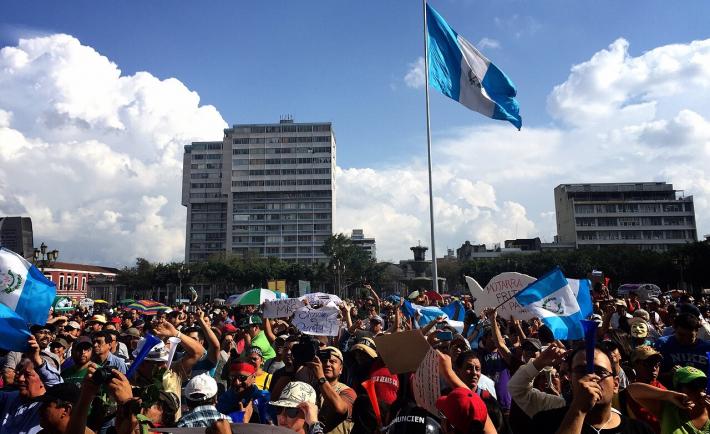
Protesters gather peacefully in Central Plaza in Guatemala City, demanding changes to the political system and the resignation of now ex-President Perez Molina. Credit: Ricardo Marroquin
In recent years, Guatemala has made headlines with bleak statistics illustrating the range of challenges it faces: the country suffers from the fifth highest homicide rate in the world, drug trafficking and narco money have penetrated society, child malnutrition is the worst in the hemisphere, and the state institutions responsible for providing services to Guatemalan citizens are notoriously weak and corrupt. Although those challenges still exist, Guatemala is now stepping back from the brink toward a much brighter future, brought about by citizens demanding more from their elected leaders.
Five Photos That Uncover the Meaning of Democracy
To celebrate this year’s Democracy Day, we asked NDI staff, who support democracy worldwide, to share a photograph that best represents the answer to the question: “What does democracy mean to you?” NDI staff are from more than 60 countries, spanning five continents. Over 100 thought-provoking images were submitted by photographers from all around the world, but the following five stood out.

